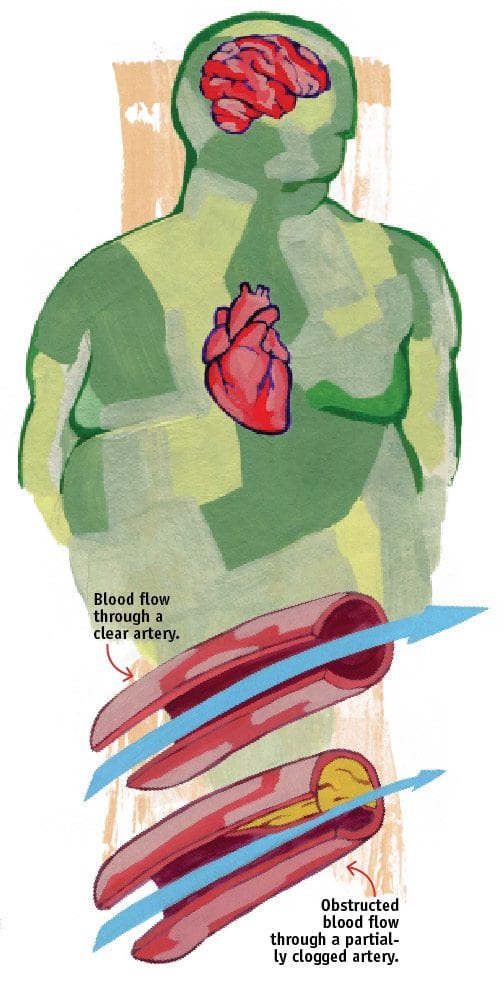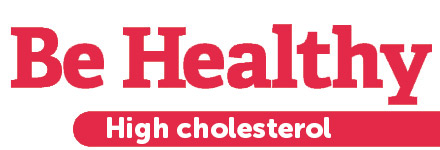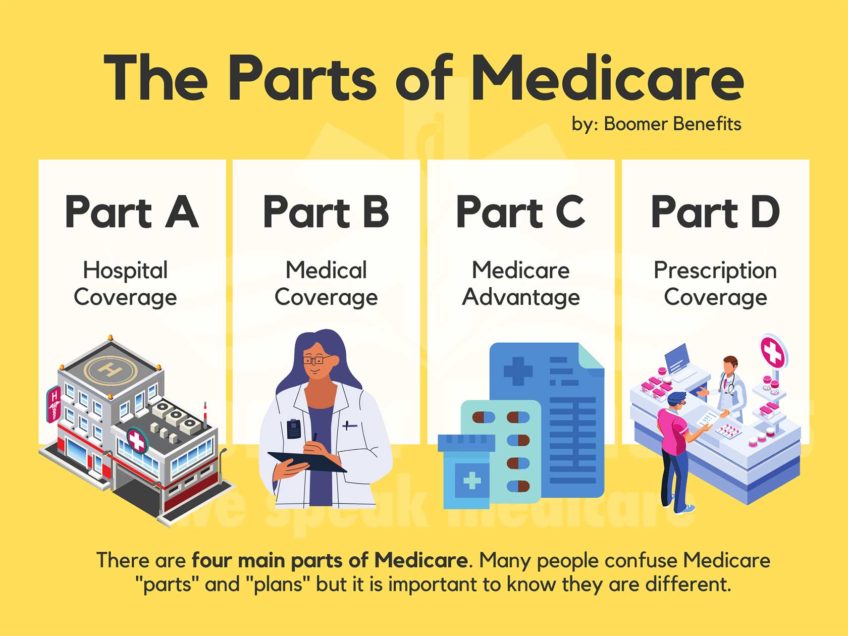
Heart attack
By far the most feared outcome of high cholesterol is a heart attack. That fear is realized every 43 seconds in the U.S., according to the Centers for Disease Control and Prevention. Each year roughly 700,000 people suffer a heart attack and almost 120,000 people do not survive. A common cause of a heart attack is plaque buildup, or cholesterol, in the arteries feeding the heart muscle, but cholesterol does not act alone. Other risk factors are age, tobacco use, high blood pressure, diabetes and even stress.
Heart disease spares no one. It is the leading cause of death for people of most ethnicities in this country, including African Americans, Hispanics and whites. It is second only to cancer in Native Americans and Asians.
It is possible to prevent heart attacks. Change in lifestyle is key, but control of blood pressure, diabetes and cholesterol is pivotal. Every 1 percent reduction in cholesterol level results in a 2 percent reduction of risk of heart disease, according to the American Heart Association.
Symptoms
- Pain or discomfort in the jaw, neck or back
- Feeling weak, light-headed or faint
- Chest pain or discomfort
- Pain or discomfort in arms or shoulder
- Shortness of breath
- Extreme fatigue (common in women)
Stroke
Uncontrolled blood pressure is more frequently correlated to stroke, but high cholesterol does its fair share of damage. The same mechanism that leads to a heart attack can cause a stroke. Arteries supplying blood to the brain become jammed with plaque. When the brain is robbed of its nutrients and energy a stroke ensues. Although only three pounds in weight, the brain hogs 20 percent of the body’s blood. That’s because it requires huge amounts of energy to get its work done. It controls movement, thinking and even emotions.
Each year almost 800,000 people in the U.S. have a stroke, and 130,000 die from the condition. Although stroke is the fifth leading cause of death in this country, it is the third in African Americans. The risk of having a first stroke is twice as high in blacks than in whites, and blacks are more likely than whites to succumb to the disease. Stroke shares the same risk factors as heart disease — age, smoking, high blood pressure and diabetes. Scientists at the National Institute of Neurological Disorders and Stroke predict that, with reduction of these risk factors, Americans should be able to prevent 80 percent of all strokes.
Symptoms
- Sudden numbness or weakness of face, arm, or leg, especially on one side of the body
- Sudden confusion, or trouble talking or understanding speech
- Sudden trouble seeing in one or both eyes
- Sudden trouble walking, dizziness, or loss of balance or coordination
- Sudden severe headache with no known cause







